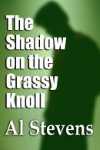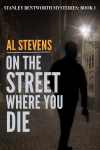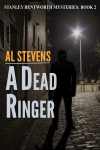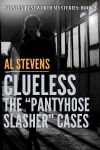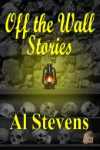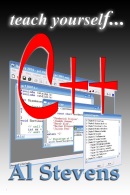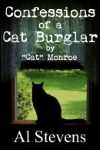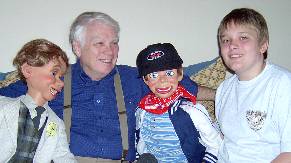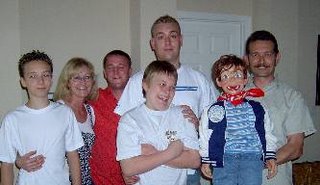A Really Big Show
My music and comedy show was last Friday, the 26th of January. The second set was all comedy, and I featured my three main figures, Dexter, Uncle Sweeter, and Aunt Sally.
Aunt Sally's material was mostly tried and true stuff with some new original material added. Dexter's was mostly new. Uncle Sweeter's was all new unless you saw the trial performance I did at the VentHaven convention last year.
I posted a video on youtube of fragments of Uncle Sweeter's part of the show. It's embedded at the end of this article. The material shown there consists of jokes I collected from other sources. I edited out my original jokes. The material I left in comes from joke books, jokes I've been told, and, in one case, a joke told in an old movie. (Two exceptions: I left in the material that is targeted specifically at members of the band and the audience; and I left in a joke that bombed big time.) You might have heard some of these other jokes told by other ventriloquists. I have, too—maybe two or three of them—but I heard every one of them somewhere else first and always from a source that predates any of the performances in which I heard them. Which makes them fair game.
Here's why I don't publish my original stuff. Recently a fellow ventriloquist told me that he had gone to my other Uncle Sweeter video on youtube and to Jeff Dunham's latest DVD to, in his words, "steal some jokes" for a nursing home performance.
Consequently, I have a new—to me—policy about publishing my original jokes on a free forum. I won't do it. If someone wants to steal my material, they can buy my DVD or pay to attend one of my performances.
Why such a harsh decision? Well, you might think it harmless to rip off some jokes to tell in a nursing home. But is it really? It puts my material out there where others can hear it—not only the old people, but their visitors, the staff, and so on.
People not in the entertainment business tend to believe that the first place they hear a joke represents the joke's origin. If they hear it again, they dismiss the teller as using old, perhaps purloined, material, even though the person they fault could be the originator of the material. Consequently, a comedian can be misjudged simply for doing his own stuff.
Doctors, accountants, lawyers, and real estate brokers have to abide by rigid codes of ethics designed to keep them from harming one another's businesses and reputations. Violate the ethics and you get into trouble and might lose your privileges to practice. Ventriloquists and other entertainers don't have any such protection, copyright laws notwithstanding. No matter how right you are and no matter what remedies a court might award you, the blemishes on your reputation don't fade.
All that said, please enjoy a performance in which Uncle Sweeter says things that have been said or written before. And please realize that this 10 minute segment is a small extract from a larger performance that is mostly original material.
Aunt Sally's material was mostly tried and true stuff with some new original material added. Dexter's was mostly new. Uncle Sweeter's was all new unless you saw the trial performance I did at the VentHaven convention last year.
I posted a video on youtube of fragments of Uncle Sweeter's part of the show. It's embedded at the end of this article. The material shown there consists of jokes I collected from other sources. I edited out my original jokes. The material I left in comes from joke books, jokes I've been told, and, in one case, a joke told in an old movie. (Two exceptions: I left in the material that is targeted specifically at members of the band and the audience; and I left in a joke that bombed big time.) You might have heard some of these other jokes told by other ventriloquists. I have, too—maybe two or three of them—but I heard every one of them somewhere else first and always from a source that predates any of the performances in which I heard them. Which makes them fair game.
Here's why I don't publish my original stuff. Recently a fellow ventriloquist told me that he had gone to my other Uncle Sweeter video on youtube and to Jeff Dunham's latest DVD to, in his words, "steal some jokes" for a nursing home performance.
Consequently, I have a new—to me—policy about publishing my original jokes on a free forum. I won't do it. If someone wants to steal my material, they can buy my DVD or pay to attend one of my performances.
Why such a harsh decision? Well, you might think it harmless to rip off some jokes to tell in a nursing home. But is it really? It puts my material out there where others can hear it—not only the old people, but their visitors, the staff, and so on.
People not in the entertainment business tend to believe that the first place they hear a joke represents the joke's origin. If they hear it again, they dismiss the teller as using old, perhaps purloined, material, even though the person they fault could be the originator of the material. Consequently, a comedian can be misjudged simply for doing his own stuff.
Doctors, accountants, lawyers, and real estate brokers have to abide by rigid codes of ethics designed to keep them from harming one another's businesses and reputations. Violate the ethics and you get into trouble and might lose your privileges to practice. Ventriloquists and other entertainers don't have any such protection, copyright laws notwithstanding. No matter how right you are and no matter what remedies a court might award you, the blemishes on your reputation don't fade.
All that said, please enjoy a performance in which Uncle Sweeter says things that have been said or written before. And please realize that this 10 minute segment is a small extract from a larger performance that is mostly original material.


